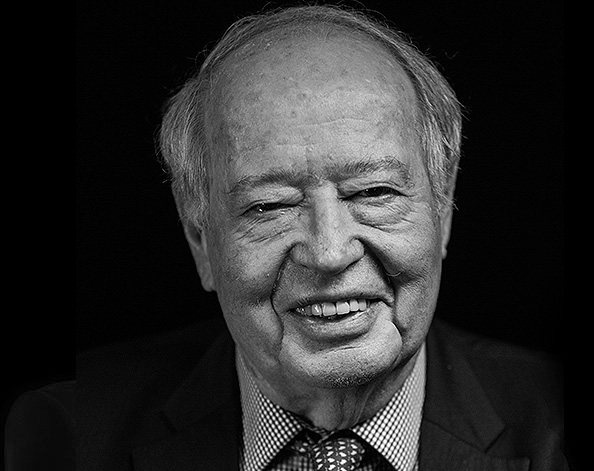Emerging markets are often favoured by investors due to their growth potential, which is generally greater than that of more developed economies. However, not all emerging markets are created equal and investing successfully in them is not without nuance.
According to Investec Wealth & Investment's Global Investment View for the first quarter of 2020, "Emerging markets are expected to enjoy better conditions. China, global trade and the US dollar look set to all be supportive (or at least not negative) in 2020."
Add to this low inflation and an uptick manufacturing activity globally and the outlook for emerging markets looking bright. However, investors should still tread carefully when chasing returns in these markets.
We asked Investec’s Global Investment Strategy Group to weigh in on what to look out for when investing in emerging markets.
The risks of investing in emerging markets
The risk-return trade-off of emerging markets
Risk versus reward is a litmus test that should govern every investment decision. In the hunt for market-beating returns, investors are often willing to assume greater risk for potentially bigger payoffs, either through their strategy or the geographies within which they invest.
We asked members of the Investec Global Strategy Group (GSIG) for their take on whether, in today's world, developed markets are more or less risky than emerging markets, and what investors should consider when investing in the likes of India, Russia, Brazil, and South Africa.
“Developed markets are, in general, less risky from a policy, political and a corporate governance perspective, but everything comes at a price,” explains Ryan Friedman, Multi-manager Investments Head, Investec Wealth & Investment SA.
Developed economies are, of course, conducive to stable long-term growth, which appeals to most investors. In contrast, emerging markets can be volatile. Prof Brian Kantor, Chief Strategist and Economist at Investec Wealth & Investment SA, explains that this lack of long-term certainty is the main risk that emerging market investors must consider, along with an understanding of what countries are included in emerging markets.
“This risk must be traded-off against the potential returns offered by a specific emerging market for an investment to make sense. As developing economies are generally growing from a lower base, there can be significant upside potential. Emerging economies that apply lessons from the developed world or adopt new technologies could also leapfrog developed countries to deliver significant returns.”

As developing economies are generally growing from a lower base, there can be significant upside potential.
What are the current emerging markets?
The key is understanding the country-specific dynamics at play as no emerging markets are the same. “For example, countries like China, Korea and Taiwan are considered emerging markets, yet all have the characteristics of a developed economy,” says Kantor.
In contrast, many high-growth African countries are also included in this collective term, yet their fundamental characteristics are distinctly different because they lag the development seen in more mature emerging markets.
According to John Wyn-Evans, Head of Investment Strategy for Investec Wealth & Investment UK, these differences include demographics, politics and policy, infrastructure and the composition of individual economies, among others.
“Some emerging market economies are built on exports, like South Africa and Brazil which sell their natural resources to the rest of the world. Conversely, China and India are mass consumption economies. As such, each emerging economy is affected differently by shifting commodity prices, as an example. For these reasons, viewing all emerging economies through the same investment lens will miss the nuances that can impact on investment returns.”
"Viewing all emerging economies through the same investment lens will miss the nuances that can impact on investment returns."
Watch the Inside Out of the Ordinary film series
The biggest emerging market economies
| 1. China | GDP: $14,140.16 billion |
| 2. India | GDP: $2,935.57 billion |
| 3. Brazil | GDP: $1,847.02 billion |
| 4. Russia | GDP: $1,637.89 billion |
| 5. South Korea | GDP: 1,629.53 billion |
| 6. Mexico | GDP: $1,274.18 billion |
| 7. Indonesia | GDP: $1,111.71 billion |
| 8. Turkey | GDP: $743.71 billion |
| 9. Taiwan | GDP: $586.10 billion |
| 10. Poland | GDP: $565.85 billion |
The 10 biggest emerging market economies by nominal gross domestic product (GDP) in 2019. Source: IMF
How to choose emerging market stocks?
Wyn-Evans adds that investors who invest in stocks must also consider the disconnect that exists between economic growth and equity performance in emerging markets, which is largely predicated on the composition of the local index.
“There is a major disparity between the composition of indices in developed and emerging markets. For example, over a quarter of the developed markets' indices are in high-growth sectors such as technology. Within emerging markets that figure is only about 16%, with the majority of these businesses focused on more cyclical and capital-intensive technologies such as semi-conductor manufacturers.”
Conversely, Wyn-Evans explains that returns from the financial sector have come under pressure of late. “This sector accounts for about 16% of global indices but comprise over a quarter of indices in emerging markets. This composition makes a material difference between valuations and returns in both of those segments.”
Given the differences in composition, sector-specific opportunities exist between emerging and developed markets, he believes.
“These differences can make a difference in the way that these markets are viewed and how they are valued, which also offers long-term opportunities.”
Five things to check for any emerging market investments
Investing in emerging markets carries risks, but it can also offer great returns. Engaging with your investment manager should always be your starting point, but considering these aspects could improve the resilience and growth of your emerging markets portfolio:
- Keep a finger on the pulse of in-country events in your target emerging market investments, as these are likely to impact local market results.
- Emerging markets are volatile by their nature – and you’re likely to achieve better results by taking a long-term view.
- Diversify across multiple markets to spread your risk across sectors and currencies
- If you prefer to invest in a single market, diversify within that market through a mutual fund or exchange-traded fund
- Choose emerging market listed securities that are traded in the world’s financial capitals for convenient investment from your home country.
Disclamer
Investec Wealth & Investment, a division of Investec Securities Proprietary Limited. Reg No. 1972/008905/07. Member of the JSE Equity, Equity Derivatives, Currency Derivatives, Bond Derivatives and Interest Rate Derivatives Markets. An authorised financial services provider No. 15886. A registered credit provider. Reg No. NCRCP262.
Registered Address: 100 Grayston Drive Sandown Sandton 2196 PO Box 78055 Sandton 2146. Tel: +27 (0) 11 286 4500 Fax: +27 (0) 11 286 9595 This disclaimer is deemed to form part of this message in terms of Section 11 of the Electronic Communications and Transactions Act 25 of 2002.
If you cannot access the disclaimer, please obtain a copy thereof from us by sending an email to: disclaimer@investec.co.za







